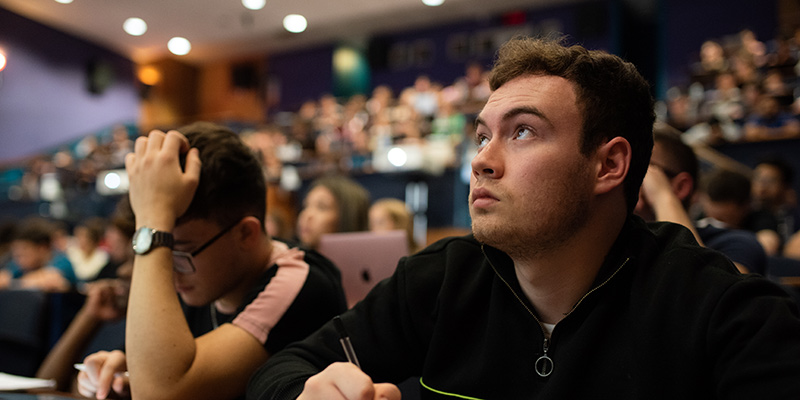
Undergraduate entry requirements
I’m an international applicant
We also accept a wide range of international qualification types, depending on your chosen course.
Find the accepted requirements for your country
If you're a non-native English-speaking applicant, we’ll ask for evidence of your English language ability.
Learn about English language requirements
If you don't meet our entry requirements, our international pathway courses can help you secure a place to study with us.
Learn about international pathway courses
We often accept pathway courses from other institutions. To know more, tell us at ug-admissions@york.ac.uk what pathway course you’re taking, and the course you’d like to study at York.
You won't be able to access our IT systems (Gmail, e:Vision, Blackboard and more), from a country subject to sanctions imposed by the UK, or other jurisdictions like the EU or USA.
I'm a mature applicant
You may not need the same academic qualifications as school-leavers. We also consider demonstrated enthusiasm, recent experience of studying, and other work or subject expertise.
You can contact the Admissions Tutor in your chosen academic department to discuss what they look for.
I'm a care-experienced or estranged applicant
We want to support care-experienced or estranged applicants at all stages of their university journey. To get all the help on offer, you can let us know more about you when you apply.
I have a disability
If you let us know of any additional needs when you apply, we can start a conversation about extra support and adjustments. You can also give us this information later in the process, like when you’re confirming your place to study at York.
Anything you tell us will be handled in confidence, and won’t affect the academic assessment of your application. It'll only be taken into account if your disability might impact entry to your chosen course (like Medicine, for example).
I’m a refugee or asylum seeker
We welcome refugees and asylum seekers living in the UK. As a University of Sanctuary, we have a history as a place of safety for people caught up in conflict and in need of refuge.
Because refugees and asylum seekers come from a variety of backgrounds, with various qualifications and experience, we consider each application on a case-by-case basis.
If you've been granted Refugee or Humanitarian Protection Status, you might be eligible for extra funding opportunities.
I've faced other personal challenges
You can let us know more about any personal challenges (sometimes known as 'mitigating circumstances') that have affected your preparation for university. We might be able to take them into account when looking at your application.
I'll be under 18 at the start of the course
Before you join us, we may invite you to an online meeting to discuss your transition to university-level study, and any extra support you need.
You'll need to nominate a UK-based guardian to confirm they’ll be legally responsible for you until you turn 18. They’ll also need to accept responsibility for any contractual obligations.
I want to transfer from another university
It’s sometimes possible to transfer from another university directly into 2nd Year (but not into 3rd or 4th Year).
If you'd like to know more, you can get in touch with your chosen academic department to discuss options.
I want to appeal my grades
Every UK student has the right to appeal their grades, but it's important to first understand the potential outcomes.
Your school or college can submit an appeal on your behalf, or otherwise give more advice and information. If you're a private student, a mature student or homeschooled, you can appeal directly to the awarding organisation.
Explore government guidance on appealing grades
If you decide to appeal any grades, let us know straight away at ug-admissions@york.ac.uk. Include your UCAS ID, the subject and qualification you're appealing, and when you expect the appeal outcome. We won't receive your revised grades automatically, so make sure to tell us of any decisions, too.
We might not be able to hold your place while we wait for appeal outcomes. The latest we can hold places is usually around the start of September, depending on your course. In some circumstances, we may offer you a deferred place.
